"Happee Birthdae Harry" as Rubeus Hagrid so aptly said twenty years ago.
Yes, its hard to believe, but this year, 'Harry Potter and the Philosophers Stone' celebrates the twentieth anniversary of its first publication, and my generation of twenty-somethings can now, finally, feel old.
Together we and Harry Potter went through school (admittedly with less owls and enchanted halls on our end), and gradually 'grew up' through both good and bad experiences (though again, less trolls and horcruxes' were involved), losses, and gains. Harry Potter really was the story of our generation. I remember my father bringing home the first Harry Potter book with a casual 'the woman in the shop said this was quite good' (yes - they hadn't quite taken off at that stage).
From then on, as each book in the series was released, there would be a flurried, exciting day where me and my two sisters would charge down to our nearest bookstore and buy a copy each (the only way to avoid an ugly scene). We would then spend the next day (and night) with our noses buried in its pages, never emerging until the very last sentence had been read. One year we were so immersed in the latest installment we let our log fire go out three times, and forgot to eat any food until dinner time (a very monumental thing for us).
Twenty years on from our first introduction to Rowling's incredible world, I not only feel old, I also feel oddly proud that 'Harry Potter and Philosophers Stone' is every bit as good to me as when I first read it all those years ago. Reason enough, I think, to break out the butterbeer and cauldron cakes.
Harry Potter and the Philosopher's Stone
As a young girl I loved magic books (what kid doesn't) particularly E Nesbit's 'Phoenix and the Carpet' and CS Lewis' Narnia. I also loved boarding school stories like Enid Blyton's 'St Clare's' series and Anthony Buckeridge's 'Jennings', so finding an author who so beautifully married together boarding schools and magic was simply the best thing ever.
Not only that but Rowling was also incredibly funny. There are passages which still make me gwarff out loud like Lee Jordan's 'impartial' quidditch commentary:
“So-after that obvious and disgusting bit of cheating-“
“Jordan!” growled Professor McGonagall.
“I mean, after that open and revolting foul-“
“Jordan, I’m warning you-“
“All right, all right. Flint nearly kills the Gryffindor Seeker, which could happen to anyone I’m sure…” .
And Ron's pragmatic reply to Harry's question:
"what if I wave my wand and nothing happens?”
Ron: “Throw it away and punch him on the nose.'
Some comic relief and cosy moments at the Burrow actually manage to transform these books into go-to comfort reading for me (except for the last book I guess - and the end of the fourth and the sixth and, well, a few other moments...).
And of course the stories are damn good. Who doesn't love a story which features the underdog (in this case an unloved orphan) transforming into a honourable hero with the skills and courage to save the (wizarding) world. In addition, as the story grew both in intricacy and character development, so did Rowling's first generation of readers. The stories' growth really couldn't have been better timed. There were always strong themes of sacrifice and loss running through Harry Potter's story but, somehow, Rowling managed to introduce more intricate, often darker ideas like Horcruxes, the death of Dumbledore, Snapes' heartbreaking love for Lily, and the supremely evil professor Umbridge's 'takeover' of Hogwarts, just as her audiences were growing in reading level and maturity.
Rowling always celebrated important character traits too such as loyalty and knowledge, themes which will make her stories timeless. Ron and Hermione sacrifice a happy, normal life to follow Harry on his quest; Snape sacrifices his own name and safety to avenge Lily and keep the mission going and, in the end, Harry makes the ultimate sacrifice, his own life, to rid the world of Voldemort.
Knowledge is celebrated through Hermione, the cleverest witch of her time and Dumbledore the epitome of wisdom. It is doubtful if Harry's quest would have progressed as successfully had it not been for Hermione swotting up on virtually every wizarding book under the sun including material on horcruxes, and had it not been for Dumbledore's private lessons with Harry in which they discussed Voldemort's past.
And who couldn't love the world Rowling managed to create? An amazing world of Quidditch, pet owls, wizarding schools, and so so much more. Somehow, Rowling still managed to also 'keep it real' by having very real themes of love (in many forms), and painful loss. Perhaps this is part of Harry Potter's huge appeal - that perfect mix of magic and reality.
Rowling also includes some great hat tips to ancient mythology. Like St Patrick or Herakles, Harry Potter has power over serpents (though admittedly Harry takes a somewhat more passive approach to Herakles and has a reasoned chat to his snakes rather than killing them in either hand from his infancy). Cerberus, the 3 headed dog like guard of the underworld, even makes an appearance as Hagrid's beloved pet 'Fluffy', and there are frequent references to Rowling's own personal favourite of mythical creatures - the phoenix, the ultimate symbol of renewal celebrated in Greek, Roman and many other mythologies. Also, like all mythological heroes, Harry is on a 'quest' which only he can achieve. Wise as Dumbledore is, and loyal as Hermione and Ron remain to the bitter end, Harry still must go on his own and leave his companions to confront the essential menace and conquer the root of all the evil.
I also love Rowling's clever use of Latin within spells and potions (For a start, 'accio' sounds so much more impressive than 'fetch' and 'felix felicitis' far more meaningful than 'lucky day'), and one has to admire the hidden meanings dedicated Potter fans manage to unearth behind seemingly innocent phrases. Take Snape's first question to Harry:
"Potter! What would I get if I added powdered root of asphodel to an infusion of wormwood?"
Some dedicated Potter fans insist that what this really means is 'I bitterly regret Lily's death', because, according to Victorian Flower Language, asphodel is a type of lily while wormwood means 'absence' and symbolizes bitter sorrow. Just as rabbis take a passage in the Torah and discuss its complexities and multiple meanings for many days, so it seems, do Potter fans for a snarky question from Severus Snape. There exists a sort of Harry Potter midrash. Who knew?
With a gripping, intricate story, quite literally magical setting, strong characters, and great humour, there is so much to love and celebrate about this incredible series. Rowling has helped to inspire a whole generation of bookworms and after twenty years, more beautiful reprints, and more spin off movies, it looks as though she will continue to work her magic for new generations to come.


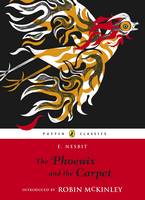
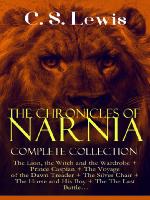
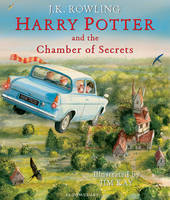
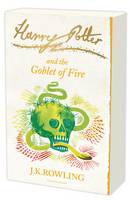
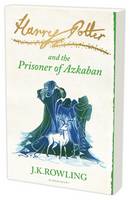
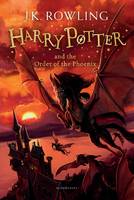
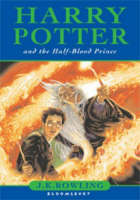
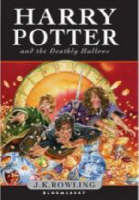
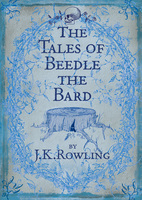
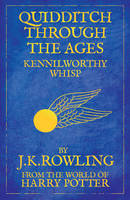
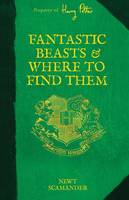
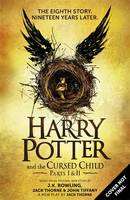

Add a comment to: Celebrating 20 years of Harry Potter